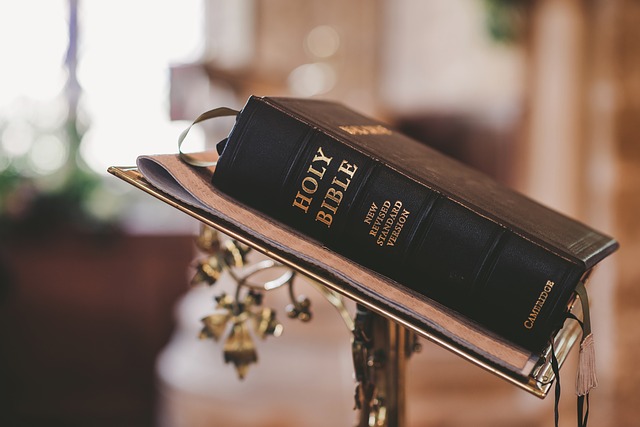The story of a Christmas Carol has been told and retold thousands of times since it was first published by Charles Dickens in 1843. It tells the tale of Ebenezer Scrooge, a miserly, old man who wants nothing to do with Christmas or anything associated with it, and who shows discontent to anyone who does.
Scrooge turns away from family, friends and those in need as he tries to keep focus on his own selfish greed. “If I could work my will,” says Scrooge, indignantly, “every idiot who goes about with ‘Merry Christmas’ on his lips, should be boiled with his own pudding, and buried with a stake of holly through his heart. He should!”
After being visited by a series of ghosts who show him the value of the Christmas spirit, he reforms himself and vows to denounce his callous stinginess and honor Christmas wholeheartedly.
The story is so well known throughout the western world that anyone not embodying the “Christmas spirit,” that spirit of caring, generosity, thankfulness and love, is often referred to as an “old scrooge.”
For many Muslims in the United States, Christmas time creates something of a predicament. Do they go along with the traditions of Christmas, even if just outwardly, in an attempt to connect with non-Muslim neighbors and friends? Or do they forgo the lights, trees, stockings and gift exchanges and risk being viewed as old scrooges?
In this article, I hope to examine these questions, not only shedding light on why Muslims don’t celebrate Christmas, but also explaining why the “Christmas spirit” is something Islam actually strongly encourages throughout the entire year.

Historic Origin
Christmas is a holiday celebrated by the majority of Christians on December 25th to commemorate the birth of Jesus Christ (may God’s peace be upon him). Christmas time is associated with many traditions and symbols, both religious and secular—scenes of the nativity, decorated trees, gingerbread houses, peppermint sticks, wreaths of holly, colored lights, snowmen, and Santa Clause, the list goes on and on.
How are all these things related to the supposed birth of Jesus on December 25th? Well, it turns out they are not related as closely as one might think. Despite what popular culture tells us, historians and religious scholars agree that December 25th was not the actual birthday of Jesus. According to textual evidence, Jesus was most likely born in the spring or summer.
However, centuries before the birth of Jesus, the middle of winter was a time celebrated by many ancient religions around the world. Among these were the Norse people of Scandinavia who celebrated Yule at the time of the winter solstice, and the ancient Romans who celebrated a series of holidays at the end of December, starting with Saturnalia, in honor of the god Saturn, and a few weeks later, Juvenalia, a feast honoring the children of Rome.
The day of December 25th actually marked the day many Romans considered to be the most sacred day of the year—the birthday of the infant god Mithra, the god of the unconquerable sun.
When Christianity became the official religion of the Roman Empire, the Church, specifically Pope Julius I, decided to replace the December 25th pre-Christian celebration of the birth of Mithra, with the celebration of the birth of who they claimed to be the son of God, Jesus.
Although the Church changed the purpose of the occasion, many of the traditions and practices found in pre-Christian Europe continued under the pretext of the Church’s new holiday and then spread to many other parts of the world. The history of Christmas includes a lot of broken links, interjections and even a few times in which the holiday was very outlawed.
However, much of that history, symbolism and all, comes together in the ways that Christmas is being celebrated today. And even though Christmas in the contemporary United States is often more secular than religious, its roots and religious significance still make it one holiday that most Muslims, including me, feel uncomfortable observing. Why?

Preserving Muslim Identity
Islam teaches that God, the Creator and Sustainer of the universe, is one, without father or son, and that there is nothing in His creation like unto Him. Thus, Muslims do not believe in the trinity or that Jesus is the son of God.
Furthermore, Muslims are very cautious to never associate anything with the one, true God, at the level of worship or otherwise. For that reason, Islam forbids any celebration associated with the worship of any other God.
And though I won’t be able to provide a thorough discussion here of the view of Jesus in Islam, one thing that must not be overlooked is the emphasis Islam places on believing, loving and respecting Jesus and his mother Mary.
Jesus is mentioned throughout the Qur’an and an entire chapter is devoted to Mary. Muslims believe that Jesus was one of the Prophets sent by God to teach humanity about the Oneness of God. They believe in his virgin birth, in his miracles, and that he is the Messiah who will someday return. However, they do not believe in his divinity or in his death on the cross as expiation for the sins of humanity.
To celebrate a day in honor of Jesus may seem harmless to some Muslims, but not when the roots of that celebration are a belief in his being the son of God and when many of the traditions involved in that celebration stem for the polytheistic practices of pagan Europe.
Christmas time, despite not being the historical time of Jesus’s birth, still seems like the perfect time to remind myself and others of the message Jesus brought to us, the miracle of his birth and the example we have in Mary as a symbol of piety.
Even though as a child, I marveled at all the decorations, lights, stories about Christmas, and I sometimes wanted very badly to partake in those traditions, and even may have wished that I could wear a Santa hat to school, I now appreciate why my family didn’t celebrate Christmas.
I appreciate why we never put up a tree or wreath or exchanged Christmas gifts. I appreciate the effort my parents made at signifying to us the importance of our holidays in Islam, `Eids—holidays which celebrate God’s blessings, mercy and forgiveness.
I appreciate that celebration is not just for the sake of celebration, or because everyone around me is doing it. Part of my being true to myself and my faith was being mindful about my activities and sincere about those things that truly made me, and more importantly my Creator, happy—and wearing a Santa hat just to fit in isn’t one of those things.
Lest it be understood that I am advocating the eradication of Christmas from American culture. I should make it clear that Islam protects freedom of religion for all members of society and as such, Muslims, even when living in a predominately-Muslim society, must allow others to express and celebrate their religious traditions.
Indeed, my not celebrating Christmas is not in emulation of old Ebenezer Scrooge. In fact, the values associated with the Christmas spirit, the spirit of thankfulness, selfless giving, kindness to strangers, and connecting with friends and family, are the same values that Islam teaches me to embody throughout my entire life.
Indeed, they are the very values that I try to instill in my own two daughters every day.
First published: December 2014